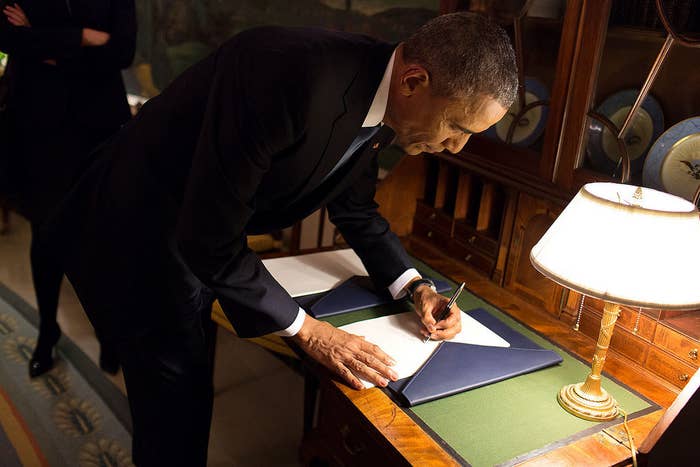
More than half of the world's population lives in cities. And in developed countries, the (relatively) lower cost and increasing ubiquity of technology such as smartphones and sensors, combined with big data, means city governments now have new and novel ways to harness computing power to tackle crime, traffic congestion, energy use, and housing — if, that is, they can afford them.
To that end, the Obama administration announced on Monday a $160 million investment in "smart city" research that includes dozens of tech collaborations with municipalities and industry leaders. According to John Holdren, the senior science adviser to the president and director of the Office of Science and Technology, the initiative will help "transform energy and resource use in our cities, and improve the quality of life for our cities' inhabitants."
France Córdova, director of the National Science Foundation, described the announcement as important to scientists, engineers, and businesspeople. "But it also has a very personal appeal to us, when we consider where some of our children and friends are now gravitating towards."
"I think it's amazing, as a mom who raised two children in the suburbs, that these young millennials are living in ... great, big cities."
Seven highlights of the smart city initiatives:
1.
The Department of Transportation is pledging more than $40 million to fund next-generation transit systems. An additional $42 million is being awarded to pilot programs using networked vehicles, including a $20 million program in Midtown Manhattan to study traffic and safety. And $17 million will be used to investigate traffic congestion in Tampa.
2.
Local administrators and industry leaders in the San Francisco Bay Area are designing a new security system for Levi's Stadium, which will host Super Bowl 50 this February. "For the first time, law enforcement, NFL security, transit authority, and city leaders will have access to the same real-time security data in a consolidated visual platform," a White House fact sheet says.
3.
The Department of Energy will invest about $10 million to support energy-efficient and low-emission cities. A $1 million prize will be awarded to the city government that produces the best plan to reduce energy consumption.
4.
The Environmental Protection Agency is committing $4.5 million in grants to support air-quality pilot studies using cheap and portable air pollution sensors.
5.
The U.S. Census Bureau will expand the open-source CitySDK project, an international toolkit that organizes municipal data for use by communities and developers. A Census Bureau pilot program will help local governments share information with national agencies for improved disaster response.
6.
The National Science Foundation is committing more than $35 million in smart city grants. Hardware projects — like ones for self-driving cars and networked buildings — will be funded by a $10 million research award. Next-generation internet prototypes harnessing gigabit speeds in areas like public safety and health care will be supported by $11.5 million in awards.
7.
In Detroit, an IBM team will help design a cost-efficient strategy to reuse material from abandoned properties.
